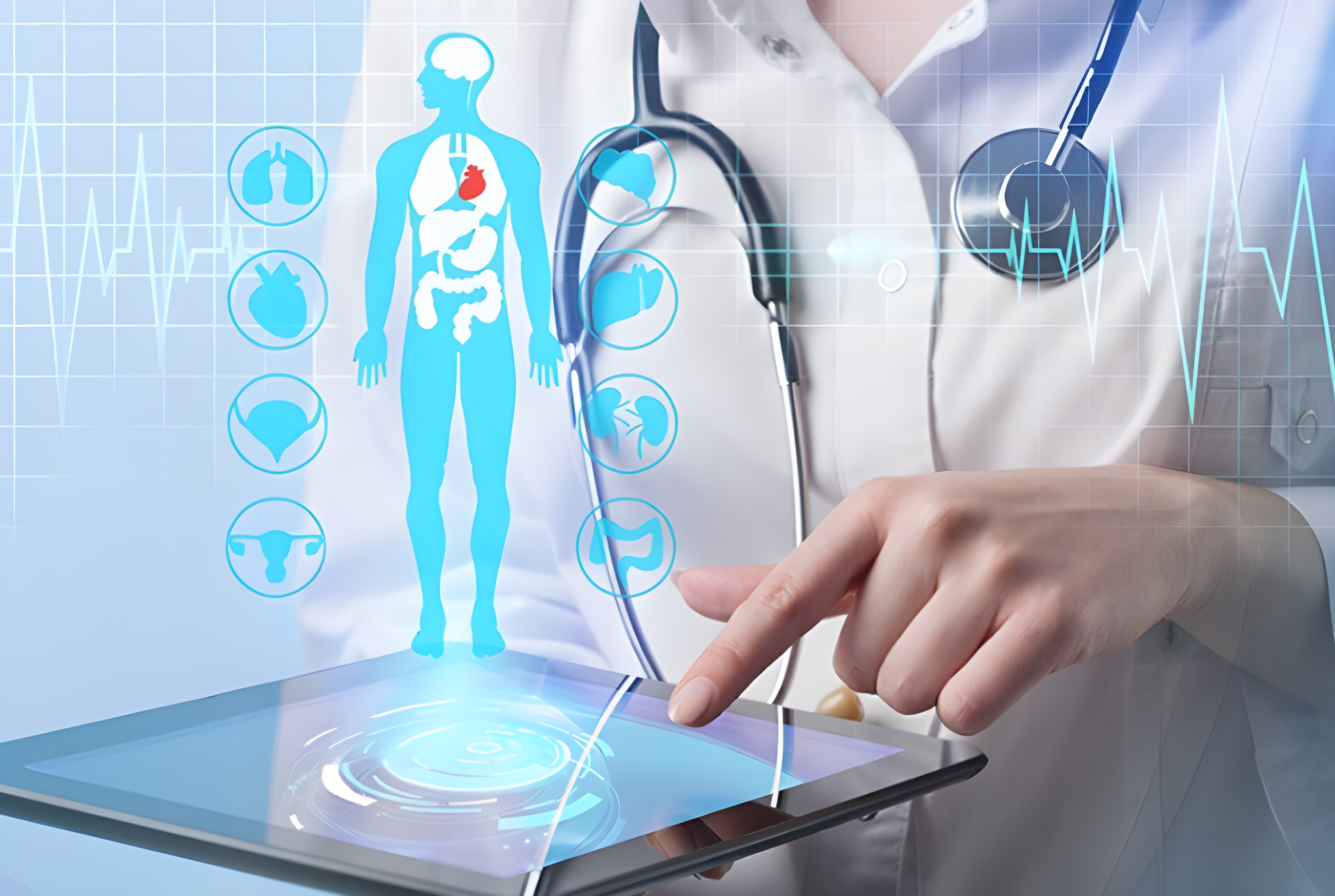Welcome to the world where technology and healthcare join forces to create a brighter and healthier future! Innovative technologies are not just changing the face of healthcare; they’re revolutionizing how we experience well-being. From simplifying daily processes to ensuring better outcomes for patients, the influence of technology in healthcare is a force to be reckoned with.
The intersection of wearable health monitoring devices and the new technology in healthcare is reshaping the landscape of health management and technology. The integration of remote monitoring devices takes this a step further, allowing healthcare providers to access real-time data and actively participate in patients’ well-being. Let’s look on a journey to know the ways in which these technological strides are reshaping healthcare for the better.
1. Telemedicine: Bridging Gaps in Accessibility
One of the standout transformations in healthcare is the rise of telemedicine. This technology allows patients to consult with healthcare professionals remotely through video calls and online platforms. For those living in remote areas or unable to travel easily, telemedicine brings healthcare right to their fingertips. It promotes timely consultations, reduces travel-related stress, and ensures that medical advice is accessible to a broader population.
2. Electronic Health Records (EHR): Efficient Information Management
Gone are the days of paper-based medical records. Electronic Health Records (EHR) have revolutionized how patient information is stored and shared. EHRs provide a centralized digital platform where healthcare professionals can access a patient’s medical history, prescriptions, and test results. This streamlined approach enhances coordination among healthcare providers, reduces errors, and ensures that patients receive more personalized and informed care.
3. Wearable Technology: Empowering Personal Health Monitoring
The advent of wearable devices, such as fitness trackers and smartwatches, has put health monitoring in the hands of individuals. These devices can track various health metrics, including heart rate, sleep patterns, and physical activity. By providing real-time data, individuals can actively manage their health and make informed lifestyle choices. Additionally, healthcare providers can use this data to offer personalized advice and interventions, fostering a proactive approach to well-being.
4. Artificial Intelligence (AI): Aiding Diagnosis and Treatment
Artificial Intelligence (AI) is making significant strides in healthcare, particularly in the realms of diagnosis and treatment. AI algorithms can analyze vast amounts of medical data, helping healthcare professionals identify patterns and make more accurate diagnoses. This not only speeds up the diagnostic process but also ensures early detection of diseases. Moreover, AI is utilized in treatment planning, offering tailored approaches based on individual patient data.
5. Robotics: Precision in Surgery and Patient Care
Advancements in robotics have brought precision and efficiency to surgical procedures. Robotic-assisted surgeries allow surgeons to perform complex operations with enhanced control and minimal invasiveness. Additionally, robotic devices are employed in patient care, assisting with tasks like medication delivery and rehabilitation exercises. This not only improves the precision of medical procedures but also accelerates patient recovery times.
6. Remote Monitoring: Managing Chronic Conditions
For individuals with chronic health conditions, remote monitoring technology offers a lifeline. Devices that can remotely track vital signs, such as blood glucose levels and blood pressure, enable healthcare providers to monitor patients’ well-being without frequent in-person visits. This approach not only improves the quality of life for those with chronic conditions but also reduces the burden on healthcare facilities.
7. Health Apps: Personalized Wellness at Your Fingertips
A plethora of health and wellness apps have emerged, providing individuals with tools to manage their health proactively. These apps offer features like medication reminders, fitness routines, and mental health support. By integrating technology into their daily lives, users can take charge of their well-being, fostering a holistic approach to health.
A word from the doctor —
The role of technology in transforming healthcare is an ongoing journey, marked by innovations that continue to reshape the industry. From increasing accessibility through telemedicine to enhancing precision in surgeries with robotics, these advancements are improving patient outcomes and revolutionizing the way we approach health and wellness.
So, get started by contacting us right away.

